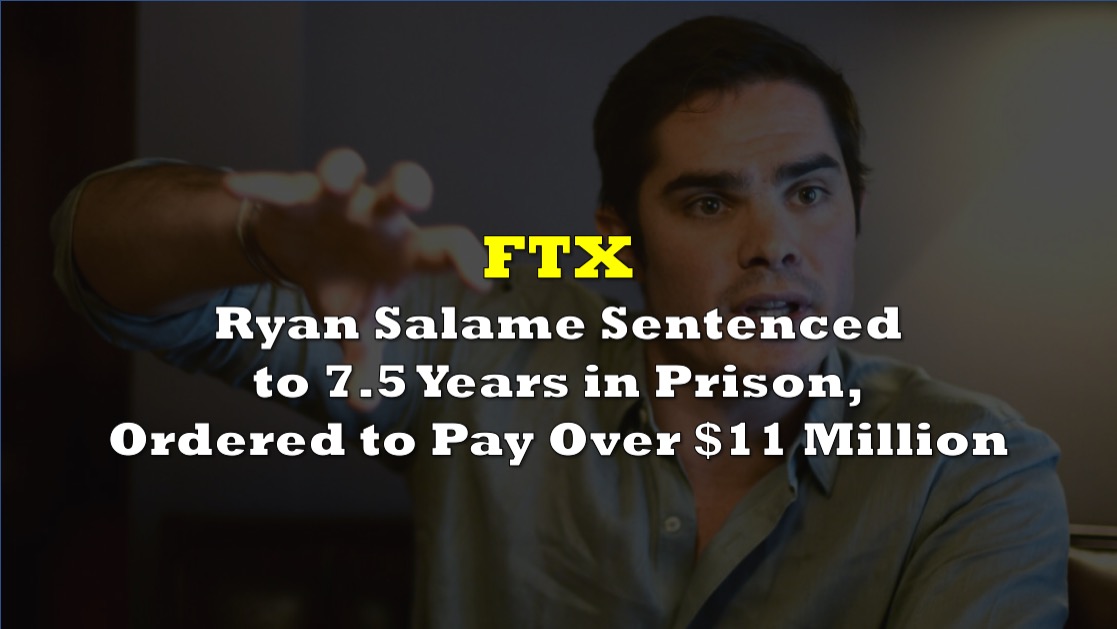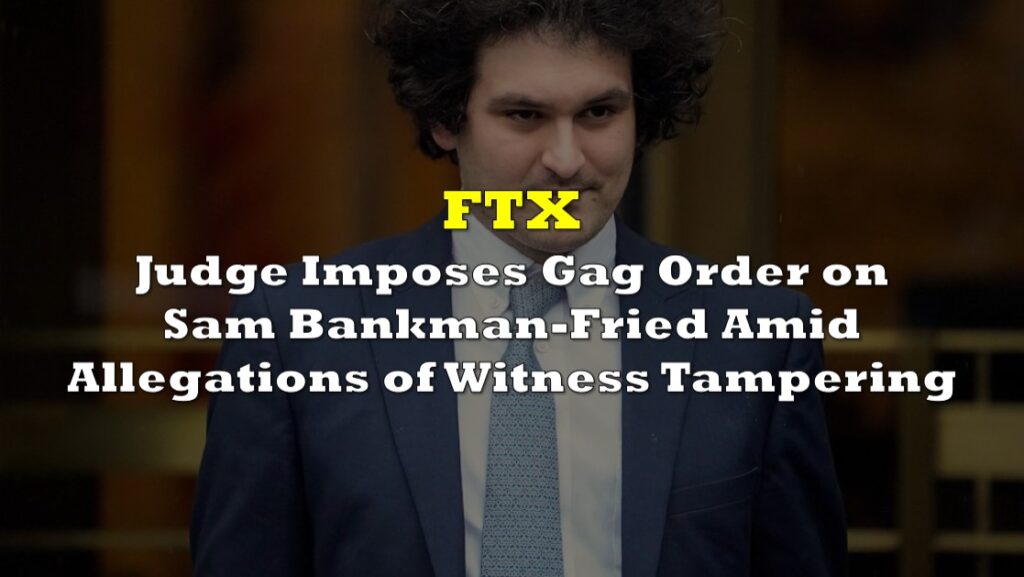Ryan Salame, a former executive at the now-defunct cryptocurrency exchange FTX, has been sentenced to 7.5 years in federal prison. The sentencing, which took place on Tuesday, includes three years of supervised release. Salame was also ordered to pay over $6 million in forfeiture and more than $5 million in restitution, penalties exceeding what the Department of Justice (DOJ) had originally requested.
Salame’s sentencing comes in the wake of the collapse of FTX, once a leading cryptocurrency exchange. The charges against him included campaign finance violations and unlicensed money transmission. The court’s decision marks a critical moment in the ongoing fallout from the FTX scandal, which has had widespread implications for the cryptocurrency market and regulatory environment.
The former crypto exec played a crucial role in FTX’s operations, particularly in its political lobbying efforts. He was implicated in a scheme to make illegal political contributions exceeding legal limits, which aimed to influence political campaigns in favor of FTX’s interests. These contributions were funneled through straw donors to conceal their origin. Additionally, Salame was involved in the transmission of funds without the proper licensing, a violation of federal financial regulations.
Salame has pled guilty to campaign finance and money-transmitting crimes in September 2023. As part of his plea agreement, he has agreed to forfeit his own properties touted to be worth nearly $1.6 billion.
He confessed that from the fall of 2021 to November 2022, he orchestrated the funneling of tens of millions of dollars in political contributions to both Democratic and Republican entities under his name. In reality, these funds originated from Alameda Research, the hedge fund affiliated with the failed cryptocurrency exchange giant, FTX.
The collapse of FTX was a major blow to the cryptocurrency world, leading to significant financial losses for investors and customers. It was revealed that billions of dollars in customer funds were misappropriated, with the unraveling of FTX identifying severe deficiencies in its financial management and internal controls.
Following the sentencing, Salame took to X, expressing his regrets and acknowledging the gravity of the situation. In a post referencing to a previous tweet reflecting on the importance of genuine relationships in the industry, he stated: “Yah terrible tweet, like the worst. I get it, I’ve cringed reading it nearly every day since I found out half of FTX customers’ money was somehow missing.”
getting sentenced to 7.5 years in prison and immediately logging on to argue with @tittyrespecter about your charges is peak poster
— Molly White (@molly0xFFF) May 28, 2024
there's no topping this https://t.co/zqHfSvoZwz
The sentencing has sparked a flurry of reactions on social media. One user, @tittyrespecter, commented “you’re going to jail for molesting my finances.” Salame argued, saying “No, I’m going to jail for campaign finance fraud and unlicensed money transmitting.”
The case underscores the need for robust regulatory frameworks to prevent such massive financial misconduct. Experts believe that this case will likely influence future policies aimed at increasing transparency and accountability in the cryptocurrency market.
“This sentencing serves as a stark reminder that fraudulent activities, especially those that impact millions of people, will not go unpunished. The Department of Justice is committed to ensuring that justice is served and that such actions are deterred in the future,” said the DOJ.
Information for this briefing was found via Reuters, The New York Times, and the sources mentioned. The author has no securities or affiliations related to this organization. Not a recommendation to buy or sell. Always do additional research and consult a professional before purchasing a security. The author holds no licenses.











